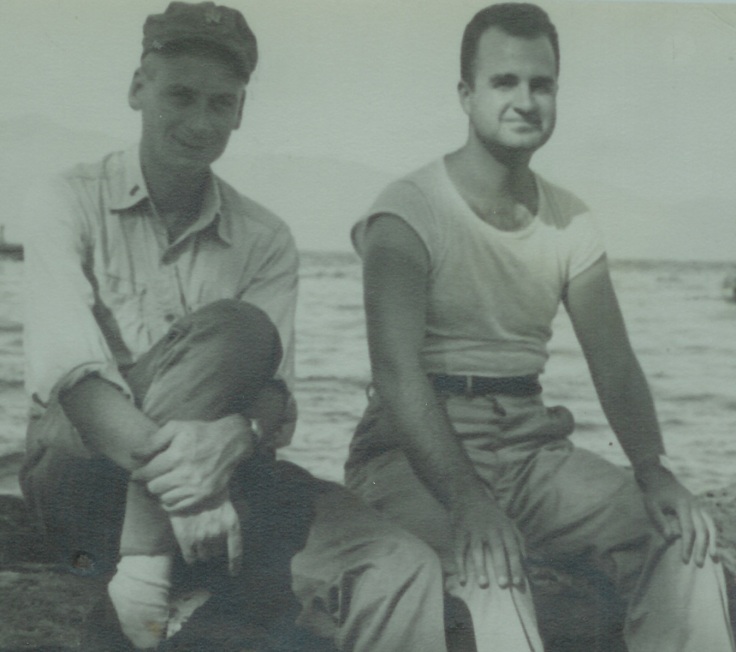Right now that hope is a little dim, given that the wars we have now are coming to a close (if we can call it that) with more of a whimper than a VE Day/VJ Day bang.
NPR ran a touching story on Honor Flight New England, an organization that offers free trips to DC for WW II vets so they can visit the monuments to their service. One surviving vet said, though long-held tears, that in all the years since he came home he thought of his service as a waste – he buried those memories and never spoke about it. On this trip, however, he said he finally understood that his service meant something and, knowing how grateful people are for his service, he would do it again ten times over. A number of people said that the veterans in their family never spoke of the war or showed any interest in war movies or documentaries. That came as somewhat of a relief to me because my father only spoke of his service in the Pacific the war in small details, although he watched every episode of The World at War and read every book it though the years. He was so pleased when his war buddy came to town – a towering man named Jim who, in uniform as I recall, would delight us with his strength by tearing a phone book in half.
Dad would pull out the atlas and show me the places with exotic names in the Philipines where he was a harbor pilot. I was very young when we did this together – we made a game out of my mispronunciation of Catbalogan – and it seemed to me then that he felt kind of lucky to be an Iowa boy navigating the ocean on big ships. I once asked him why he didn’t drink coffee and he said “I had a lifetime’s worth of coffee in the war.” That’s as much as I ever recall hearing about life on a Navy ship. After he died in 1992, I read his letters home to his mother and they seemed to chronicle the times in ways that were unremarkable. In the few photos I have of him, he is smiling. Some people interpret this as him blocking out the mean experiences of war – that there were stories too terrible to be told. I really don’t know.
What strikes me now is that in the age of instant global communication, we are not under any illusion about what our soldiers are facing overseas. They do not have the luxury, if you can a call it that, of burying the atrocities of war when they come home. It’s on TV, the internet and at the movies. The Greatest Generation had On the Town, South Pacific and From Here to Eternity – our guys have Platoon, The Hurt Locker, and Jarhead. I suspect there won’t be a musical about Afghanistan any time soon.
We are losing more soldiers to suicide at home than we are on deployment. It’s hard to know what to do to help, although we should make sure vets get the mental health services they need and their benefits on time, neither of which is happening now. In the meantime, I hope that, unlike some of the men in the NPR story, today’s servicemen and women don’t have to wait 60 years to hear their fellow citizens say “thank you.”
Thank you.



